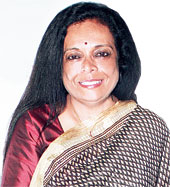
This round was soundly won by Rahul Gandhi. #SacredGames After a Congress leader from West Bengal filed a complaint, and it all made it to prime time, the crass reference to Rajiv Gandhi as a wimp (the "f" word it translates into in Hindi is the one that sounds offensive) got an admirably mature response from Rahul. His sensible tweet, which began with a swipe at the RSS/BJP, went on to say, "...I believe this freedom (of expression) is a fundamental democratic right. My father lived and died in the service of India. The views of a character on a fictional web series can never change that."
With that masterly stroke, he silenced both those within his party and those without.
But rest assured, the controversy has not been laid to rest. This was only the first season of the Netflix crime-and-cops gangster thriller where a couple of potshots were taken at the Emergency, at Bofors and at the mishandling of the Shah Bano case. All the jibes were taken by a crude criminal played by Nawazuddin Siddiqui, not by Saif Ali Khan whose family, in real life, has unwavering loyalty to the Gandhis.
It was also noted by those who know Anurag Kashyap, who has produced and directed Sacred Games along with Vikramaditya Motwane, that it was uncharacteristic of him to take jabs at the Congress when he is no BJP supporter. He was the one who had appropriately thrashed the present government during the Udta Punjab controversy.
Sure enough, when a little-known Congress guy filed a complaint, Anurag himself didn't come out with his usual artillery of verbal condemnation of the party. And it was completely in character when he responded to RaGa with a prompt, "That's a yay".
What the BJP and its supporters don't realise is that by talking about freedom of expression this time around, they've bitten the bait; they've walked into a trap laid in Season 1. The last episode of Sacred Games hinted at a Trivedi and a Guruji as suspects in an anti-national conspiracy. Let Siddiqui's hard-hitting political commentary spill over to the new millennium and it just may be the turn of the BJP and the saffron brigade to start squirming. It'll be fun to see how they handle it when a few choice names are given to any of their leaders in the next season. After all, Netflix is a platform where Prasoon Joshi's company doesn't have a say. And political correctness doesn't exist out there.

Talking of which, Scarlett Johansson's move last week to opt out of Rug & Tug - a film where she was to play transgender Dante Tex Gill, a real-life crime kingpin - makes one wonder if what's happening is in the best interests of cinema. Scarlett has made way for a real transgender actor (who're generally marginalised) to step in.
Hollywood has been witnessing a movement, where, in the name of diverse acting standard, white actors are pulled up if they're cast as coloured men. Instead of a white actor putting on a stereotypical black face or yellow face to play a non-white, actors who belong to that ethnicity should be cast. When Scarlett herself played the Japanese Motoko Kusanagi in Ghost In The Shell, a manga series, she was criticised for "cultural appropriation".
But if one were to take that to an extreme, whither acting? Isn't acting all about playing someone you are not? To stretch it, how right would it be to say that in the name of cultural authenticity, a Khan or a Siddiqui shouldn't play Lord Rama or take part in a Ram Lila? Using Scarlett's example of stepping out of playing transgender because it would be "insensitive" for her, would it be right to say that Atul Kulkarni should not have done that superb turn in the Marathi film, Natsamrat, because that part should have gone to an actor who really was effeminate?
Whether political interference or strident culturalism, somehow the creative space for freedom for expression seems to be shrinking. And that's alarming.
Bharathi S. Pradhan is a senior journalist and author










